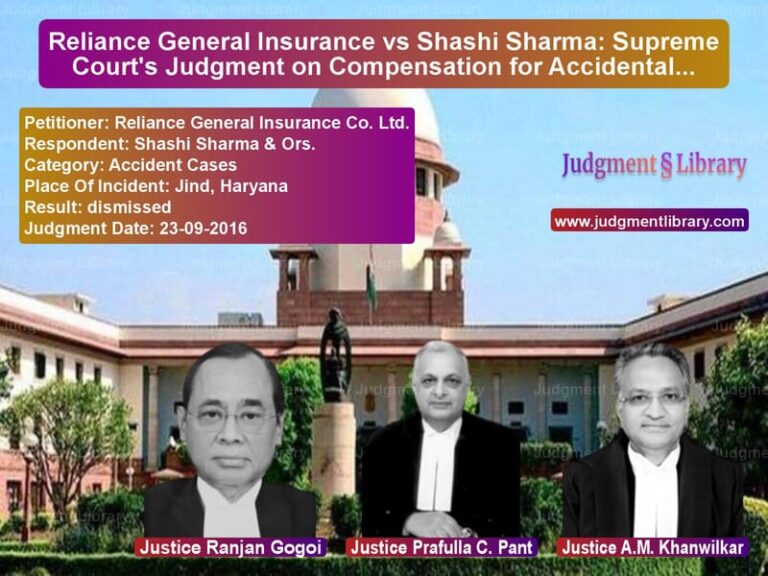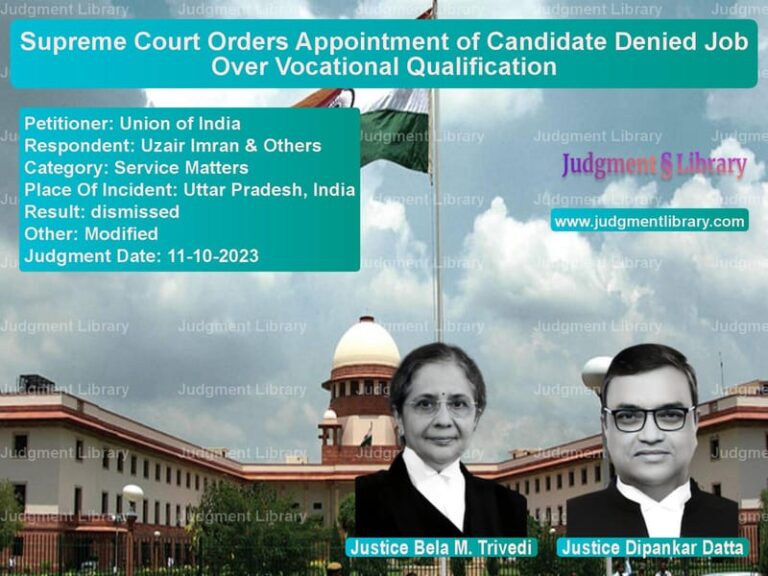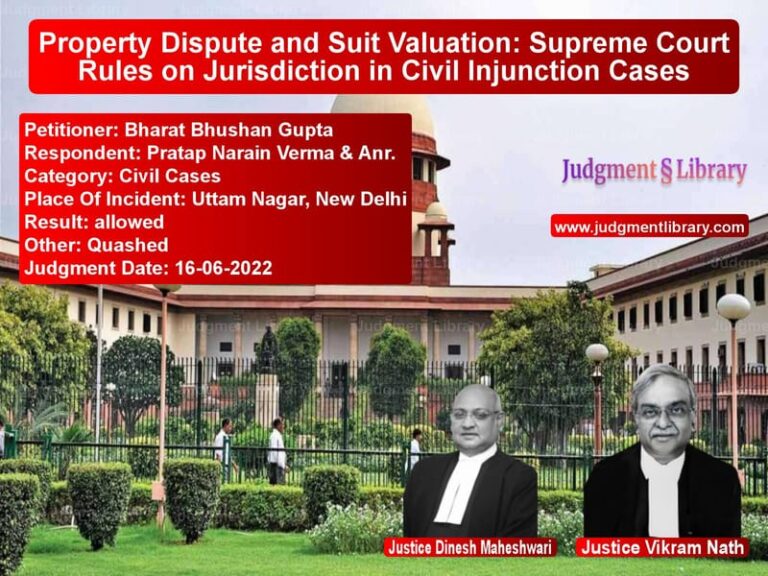Supreme Court Upholds Minority Status of Cluny Women’s College
The Supreme Court of India recently delivered a landmark judgment in the case of Sisters of St. Joseph of Cluny v. State of West Bengal, where it upheld the minority status of Cluny Women’s College. The case revolved around whether the college, which was initially established as a secular institution, could later claim minority status under the National Commission for Minority Educational Institutions Act, 2004 (NCMEI Act).
The Court ruled that the college was entitled to its minority status and that the National Commission for Minority Educational Institutions (NCMEI) had the authority to declare the minority status of an institution. This judgment clarifies the scope of NCMEI’s powers and reinforces the constitutional rights of minority communities to establish and administer educational institutions of their choice under Article 30 of the Constitution of India.
Background of the Case
The case originated from a dispute over the status of Cluny Women’s College in West Bengal. The college was initially established in 1998 as a secular institution and was granted permanent affiliation by the University of North Bengal in 2004.
However, in 2007, the managing society of the college, the Sisters of St. Joseph of Cluny, applied to the NCMEI for recognition as a minority educational institution. The NCMEI granted minority status to the college on October 23, 2007, and issued a certificate on October 25, 2007. This decision was challenged by a parallel governing body of the college and the State of West Bengal, leading to a legal battle that ultimately reached the Supreme Court.
Arguments by the Petitioners (Sisters of St. Joseph of Cluny)
- The college was established and administered by a Christian minority organization and was entitled to minority status under Article 30 of the Constitution.
- The NCMEI had the jurisdiction to declare the minority status of an institution, even if it was established before the enactment of the NCMEI Act in 2004.
- The fact that the college initially did not claim minority status did not prevent it from doing so later, as fundamental rights under Article 30 cannot be waived.
- The High Court’s ruling, which invalidated the NCMEI’s order, was incorrect and should be set aside.
Arguments by the Respondents (State of West Bengal and Others)
- Cluny Women’s College was established as a secular institution and was initially governed under the statutes of the University of North Bengal.
- The NCMEI lacked the authority to declare minority status in this case, as the power to grant such status rested with the competent authority under Section 10 of the NCMEI Act.
- The governing body, formed under the university’s statutes, had the right to continue managing the college.
- Once an institution is established as a secular entity, it cannot later claim minority status.
Supreme Court’s Observations
The Supreme Court extensively analyzed the provisions of the NCMEI Act and the constitutional rights of minority institutions. Key observations included:
- “Article 30 of the Constitution grants a fundamental right to minorities to establish and administer educational institutions of their choice. This right cannot be waived, and an institution’s initial secular nature does not prevent it from claiming minority status later.”
- The NCMEI has the power to declare the minority status of an institution, as per Section 11(f) of the NCMEI Act, which allows the Commission to decide “all questions relating to the status of any institution as a minority educational institution.”
- The High Court erred in ruling that the NCMEI lacked jurisdiction in this matter.
- The governing body formed under the university’s statutes had no standing to challenge the college’s minority status once the managing society had lawfully secured it.
Final Judgment
The Supreme Court set aside the High Court’s judgment and upheld the NCMEI’s decision to grant minority status to Cluny Women’s College. The Court ruled:
“The fundamental right under Article 30 cannot be waived. The NCMEI has the authority to determine and declare the minority status of an institution. The appeal is allowed, and the judgment of the Calcutta High Court is set aside.”
With this ruling, the college’s minority status was restored, and the managing society was recognized as the legitimate governing body.
Significance of the Judgment
This landmark decision reinforces the constitutional protections afforded to minority educational institutions in India. It establishes the following important legal principles:
- NCMEI’s Authority: The NCMEI has the jurisdiction to declare the minority status of educational institutions, even if they were initially established as secular entities.
- Fundamental Rights: Minority rights under Article 30 cannot be waived, and institutions can seek recognition of their minority status at any stage.
- Judicial Oversight: High Court rulings that restrict NCMEI’s powers must be carefully reviewed to ensure they align with constitutional protections.
Conclusion
The Supreme Court’s judgment in this case provides clarity on the scope of minority rights in India’s education system. By affirming the NCMEI’s authority and protecting the rights of minority institutions, the ruling ensures that educational institutions run by minority communities can continue to operate in accordance with their constitutional rights.
Petitioner Name: Sisters of St. Joseph of Cluny.Respondent Name: State of West Bengal & Ors..Judgment By: Justice Adarsh Kumar Goel, Justice R.F. Nariman.Place Of Incident: West Bengal.Judgment Date: 17-04-2018.
Don’t miss out on the full details! Download the complete judgment in PDF format below and gain valuable insights instantly!
Download Judgment: Sisters of St. Josep vs State of West Bengal Supreme Court of India Judgment Dated 17-04-2018.pdf
Direct Downlaod Judgment: Direct downlaod this Judgment
See all petitions in Fundamental Rights
See all petitions in Constitution Interpretation
See all petitions in Public Interest Litigation
See all petitions in Judgment by Adarsh Kumar Goel
See all petitions in Judgment by Rohinton Fali Nariman
See all petitions in allowed
See all petitions in supreme court of India judgments April 2018
See all petitions in 2018 judgments
See all posts in Constitutional Cases Category
See all allowed petitions in Constitutional Cases Category
See all Dismissed petitions in Constitutional Cases Category
See all partially allowed petitions in Constitutional Cases Category







